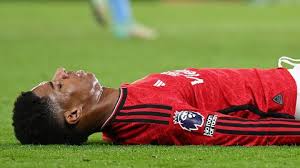Manchester United’s Europa League Spot at Risk: INEOS Ownership Dispute

Manchester United qualified last minute for a spot in the Europa League next season with an astonishing FA Cup win but faces an unexpected challenge.
The Red Devils face potential relegation from the Europa League due to an ownership dispute involving INEOS.
Sir Jim Ratcliffe, the owner of INEOS, holds a 27.7% stake in Manchester United and is also the majority shareholder at French club Nice, which has also qualified for the Europa League.
UEFA’s Multi-Club Ownership Rules
UEFA has strict regulations regarding multi-club ownership. These rules aim to maintain the integrity of competitions by preventing any organization or individual from having “decisive influence” over more than one club participating in the same competition.
In the case of Manchester United and Nice, both owned by INEOS, UEFA’s concern is that shared ownership could compromise fair competition.
Manchester United’s Dilemma
The issue lies in whether INEOS can satisfy UEFA’s requirements. An independent panel will rule on the issue before the Europa League qualifying rounds begin in July.
If a solution isn’t found, Manchester United could drop into the Europa Conference League, a step down from the Europa League, based on their lower Premier League finish (eighth) compared to Nice’s Ligue 1 position (fifth).
INEOS’ Sporting Control
The principal issue revolves around the extent of INEOS’ sporting control at both clubs. While Ratcliffe is a minority shareholder at Old Trafford, he plans to increase his stake to 30%.
Ratcliffe’s recent deal with the Glazers granted him full control of football operations at Manchester United. This includes the authority to hire and fire key executives, such as managers and sporting directors. UEFA considers such influence a violation of the multi-club ownership rules.
INEOS’ Confidence and UEFA’s Guidance
INEOS remains “confident” that a solution will be found, as they engage in direct dialogue with UEFA. The governing body recently issued fresh guidance on multi-club ownership, emphasizing the need for compliance.
Factors like the ability to appoint or remove key executives and influence critical decisions play a pivotal role in determining “decisive influence” through governance.
Conclusion
As the Europa League qualifiers nears, all eyes are on INEOS, Manchester United, and Nice. Will they find a resolution that satisfies UEFA? Or will the Red Devils face an unexpected relegation?
Remember, this situation underscores the delicate balance between club ownership and fair competition. Let's hope for a solution that promotes fairness as we await the verdict.